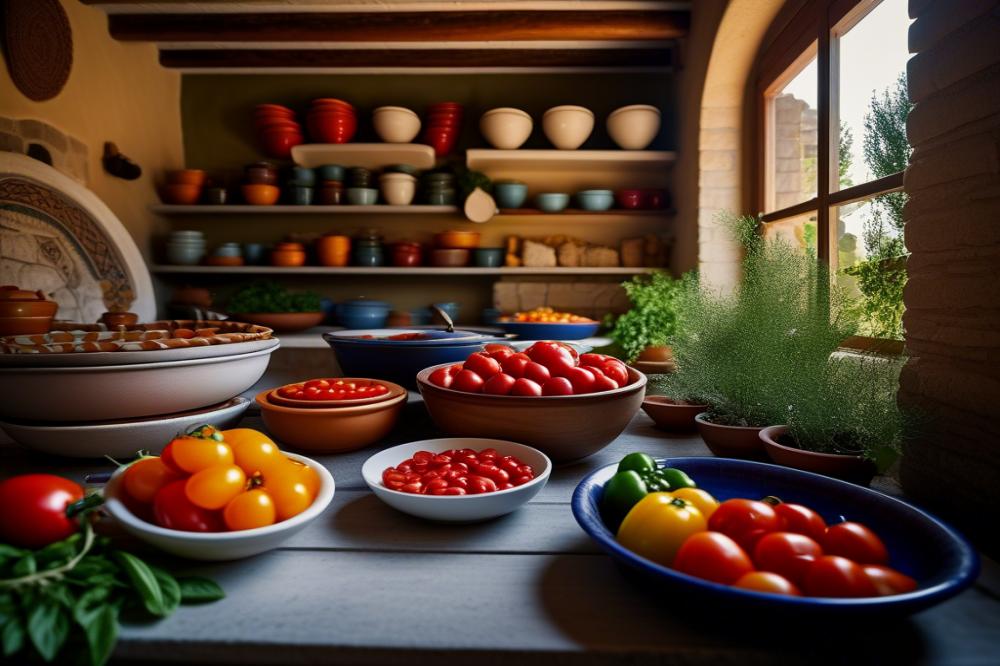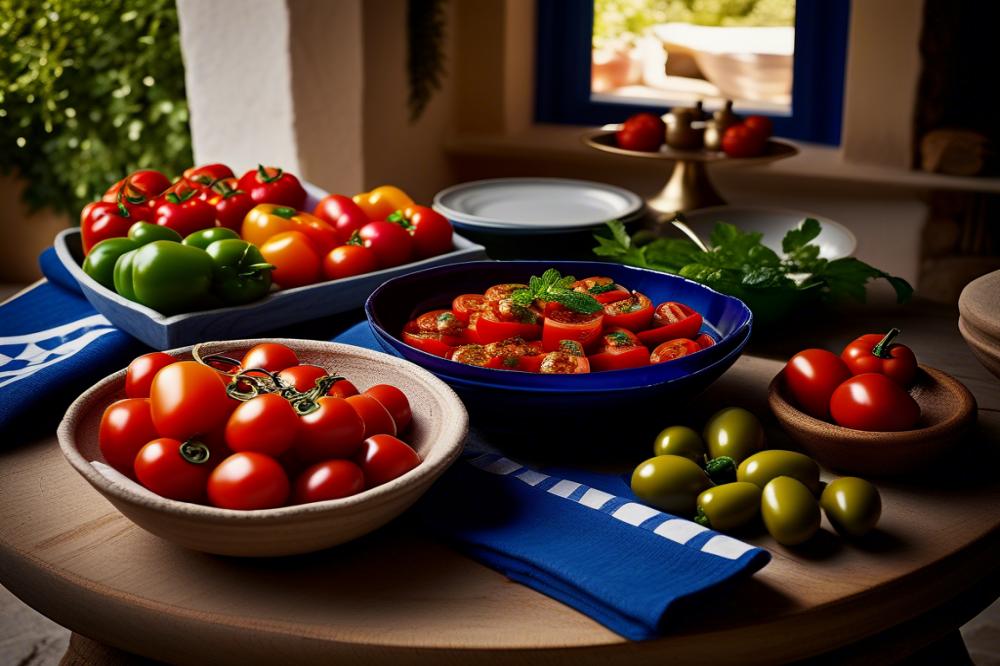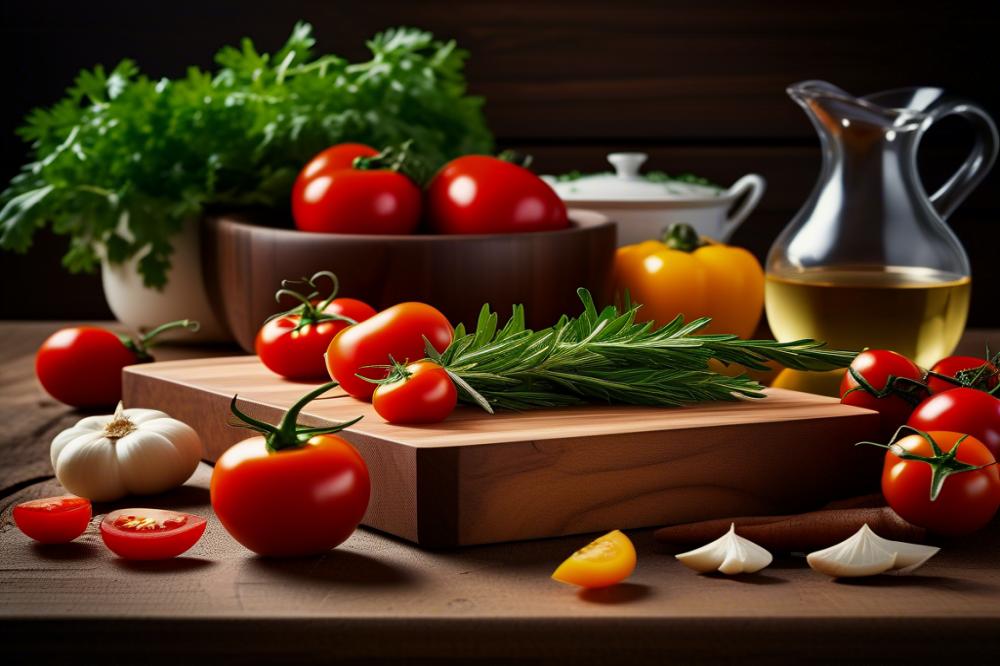The Role of Seasonal ingredients in Greek cooking
The world of Greek cooking is a vibrant tapestry woven with rich flavors, aromas, and colors. Every meal tells a story, often linked to age-old culinary traditions. This cuisine thrives on fresh produce sourced from local farms, where the land meets the sea. The Mediterranean climate offers ideal conditions for cultivating a variety of ingredients throughout the year.
Understanding the significance of providing Seasonal ingredients is vital for anyone interested in Mediterranean cuisine. Chefs celebrate the rhythm of nature by highlighting fruits and vegetables at their peak. Each season breathes life into traditional dishes that reflect the agricultural practices of the region. For example, summer brings sun-kissed tomatoes and fragrant basil, while winter showcases hearty greens and citrus fruits.
Greece is not just about the food; it embodies a rich food culture that includes family gatherings centered on meals. People connect over the simple pleasure of sharing a meal made with care. With seasonal recipes, chefs craft unforgettable experiences that resonate within communities. Herbs and spices play a crucial role, enhancing flavors and adding depth to dishes that are both familiar and surprising.
This focus on local flavors enhances sustainability. Small farms thrive on the support of their communities, encouraging a cycle of growth that benefits everyone involved. By embracing the bounty nature offers, culinary travel adventures in Greece become a journey through the heart of its cooking culture. Visitors can explore bustling markets brimming with fresh produce and learn about the importance of seasonality in every bite.
As we delve deeper into what makes Greek cooking so special, prepare to discover how these elements come together to create meals that are more than just food. They are sensory experiences that celebrate life, connection, and tradition.
The Importance of Seasonal Ingredients


Seasonal ingredients play a vital role in Greek cooking. These are ingredients that are harvested at specific times of the year. Using fresh produce that is in season brings out local flavors. It also reflects Greece’s deep connection to its land and its climate. Each season brings a new selection of fruits, vegetables, and herbs, shaping the dishes that evolve over time.
This approach to cooking highlights the country’s food culture. Mediterranean cuisine thrives on local parts of nature’s bounty. Dishes made with ingredients like ripe tomatoes in the summer or hearty greens in the winter connect people with their surroundings. Recipes that change with the seasons offer a deeper understanding of culinary traditions. This practice showcases the care that goes into selecting what to cook and eat.
Furthermore, the use of seasonal ingredients supports family farms and local markets. Consumers who prioritize fresh produce often end up supporting sustainable agricultural practices. This connection fosters a sense of community. It also ensures that traditional dishes are prepared with the best quality ingredients available. Herbs and spices found in local gardens enhance flavors wonderfully. Families pass down recipes that embrace what the land provides at any given time.
Choosing ingredients that are in season can yield impressive culinary results. Seasonal recipes not only taste better but can also be more nutritious. When cooks work with what’s fresh and available, the dishes become a celebration of nature’s rhythm. This dynamic interaction between food, environment, and community enriches the experience of dining in Greece. For many, it is a cherished part of their heritage that continues to thrive.
Fresh Produce and the Greek Table


Greece boasts a rich variety of fresh produce. This abundance results from its favorable Mediterranean climate. Farmers cultivate crops in nearly every region, leading to vibrant flavors in their culinary traditions. Seasonal fruits and vegetables play a vital role at the Greek table. These ingredients shape dishes and bring local flavors to life.
Fruits and Vegetables Through the Seasons
Spring heralds the arrival of snap peas and strawberries. These bright, juicy delights are perfect for salads or desserts. As summer unfolds, tomatoes and eggplants dominate the markets. Their vibrant colors and robust taste are essential for preparing traditional dishes like moussaka. Autumn shifts to hearty vegetables such as pumpkins and squashes, bringing warmth to many recipes. Winter offers a different selection, with citrus fruits like oranges and lemons brightening the cooler months.
The Impact of Climate on Availability
The climate in Greece significantly influences agricultural practices. A mild Mediterranean climate allows for an extended growing season. This, in turn, enhances the diversity of fresh produce available. Farmers often grow crops that thrive in specific seasons. They adapt their planting schedules according to weather patterns. Such practices contribute to sustainability, allowing communities to enjoy ingredients at their peak.
Herbs and spices also flourish in this region. Oregano, thyme, and basil are common staples that elevate many dishes. They provide depth and flavor that are hallmarks of Mediterranean cuisine. With each season, Greek cooks create seasonal recipes that showcase what is fresh and available. This connection to nature strengthens the food culture of Greece. It invites everyone to appreciate the beauty of local, seasonal ingredients on their plates.
Culinary Traditions and Seasonal Recipes


Greek cooking is deeply rooted in culinary traditions that celebrate the flavors of each season. Many dishes, such as moussaka and dolmades, rely heavily on fresh produce that is harvested at specific times of the year. In spring, tender greens and herbs come alive, making their way into salads and pies. Summer brings ripe tomatoes and zucchini, which show up in various recipes around the country.
A closer look at these traditional dishes reveals a strong connection to sustainability. Local farmers grow what is in season, proudly supplying markets and kitchens. This practice supports both the environment and the economy. Adapting recipes based on agricultural practices allows both chefs and home cooks to experiment creatively.
Seasonal Adaptations in Greek Cooking
Home cooks often blend modern twists with old favorites. For example, a classic Greek salad transforms with whatever vegetables are fresh. During the fall, squashes and root vegetables join the mix, adding warmth and depth. Herbs and spices play a vital role, too. In the winter months, hearty stews flavored with rosemary and thyme become popular.
Chefs in restaurants take similar approaches. They highlight local flavors by incorporating ingredients from nearby farms. This not only enhances the dish but tells the story of the land. Their menus change often, reflecting what is available throughout the year. Creativity shines in these seasonal recipes, showcasing the versatility of Mediterranean cuisine.
Showcasing Local Flavors
Recipes such as choriatiki (the classic village salad) become a canvas for local ingredients. In summer, fresh cucumbers and ripe olives take center stage. Onions add a sharpness that balances the dish, while feta cheese brings creaminess. As autumn arrives, other vegetables like bell peppers and eggplants may change its character, yet the essence remains intact.
Each season tells a different story through food culture. Traditional events often revolve around specific crops, with families gathering to prepare meals together. These occasions keep the culinary traditions alive, passing down recipes through generations. It’s a wonderful way for communities to connect over shared meals.
Greek cooking highlights ingredients in their peak state, which enhances both flavor and nutrition. Simple dishes often contain only a few components, but their impact is profound. By focusing on what each season offers, cooks and chefs craft meals that resonate with authenticity.
Herbs, Spices, and Sustainability


Herbs and spices play a vital role in Greek cooking. These ingredients enhance the natural flavors of various dishes. A sprinkle of oregano or a dash of cinnamon can transform a meal. The right seasoning elevates simple ingredients into extraordinary culinary experiences. From traditional recipes to modern adaptations, these small additions create unique flavors that reflect local culture.
Greek cuisine thrives on the abundance of fresh produce. Each season offers its own array of fruits and vegetables. This encourages cooks to adapt their meals throughout the year. Many traditional dishes rely on what’s available at the local market. By using seasonal recipes, families connect with the land and its offerings. The cycle of growing and harvesting teaches patience and appreciation for nature’s timing.
Sustainability is more than a trend in Mediterranean cuisine. It is a practice deeply rooted in the region’s agricultural practices. Eating in harmony with the rhythm of nature promotes a healthier planet. Local flavors can significantly reduce the carbon footprint. Supporting farmers who grow seasonal produce helps ensure vibrant ecosystems. This relationship between consumers and producers strengthens community bonds.
The benefits of choosing seasonal ingredients extend beyond taste. They provide essential nutrients that support well-being. When fruits and vegetables are in season, they are at the peak of their freshness. This means they often contain more vitamins and minerals. Additionally, these choices can lead to lower prices at the market. That’s good news for both wallets and health.
Overall, embracing herbs and spices while focusing on sustainability makes Greek cooking digestible. Each meal becomes a celebration of local flavors and culinary traditions. It’s about respecting the land and enjoying what it naturally provides. Understanding this connection fosters a deeper appreciation for food culture.
Experiencing Seasonal Ingredients in Greece
Traveling to Greece provides a wonderful chance to explore local flavors that vary by season. Markets brimming with fresh produce attract visitors and locals alike. Strolling through these markets reveals a tapestry of colors, scents, and textures. Each season brings new fruits and vegetables that showcase the country’s amazing biodiversity.
How to Discover Seasonal Ingredients Through Culinary Travel
With each culinary journey on the islands or mainland, travelers uncover unique seasonal recipes. Participating in cooking classes with local chefs allows for hands-on experience. Learning to prepare traditional dishes using freshly picked ingredients can deepen one’s appreciation for Mediterranean cuisine.
Food Markets, Local Farms, and Gastronomic Tours in Greece
Food markets serve as vibrant gathering spots. Locals share stories about their daily lives and agricultural practices. These interactions foster a deeper understanding of the food culture. Visiting local farms offers insights into the meticulous methods of growing herbs and spices. Participants often join in harvesting, which connects them to the land.
Engaging with Local Communities to Learn About Traditional Practices
Engagement with communities reveals secrets of Greek cooking passed down through generations. Sharing meals with families can be a rewarding experience. Dinner tables become places of connection filled with laughter and friendship. Through these moments, travelers learn about the importance of sustainability in cooking. This respect for nature influences how Greeks view their ingredients and meals.
Culinary tours often include tastings of olives, cheeses, and wines, allowing a deeper understanding of regional specialties. Each bite becomes a lesson in the rich heritage of Greece. In turn, these experiences enhance appreciation for the country’s diverse food landscape. Walking through olive groves or vineyards adds a tactile element to the journey, making it memorable.
Bringing It All Together
Greek cooking heavily relies on the use of fresh produce that reflects the landscape’s changing seasons. This practice not only enhances flavors but also connects dishes to the local environment. Eating with the seasons means enjoying fruits and vegetables at their peak. Each ingredient tells a story and contributes to a vibrant Mediterranean cuisine that is rich in culture and history.
For those eager to explore the culinary world, experimenting with locally sourced ingredients can be immensely rewarding. Trying out recipes that focus on what’s available in your area gives a unique insight into traditional practices. Understanding the seasons enhances the overall cooking experience. When you embrace what nature offers, it can lead to delightful and sometimes unexpected discoveries in your meals.
Caring for the earth is an essential part of Greek culinary traditions. By focusing on what is seasonal, cooks not only support local farmers but also promote sustainability. Respecting these practices allows everyone to appreciate the depth and richness of this cuisine. So, whether in a bustling market or at home, let the natural rhythm of the seasons inspire your cooking journey. This way, you honor the past while savoring flavors that come directly from the heart of Greece.



